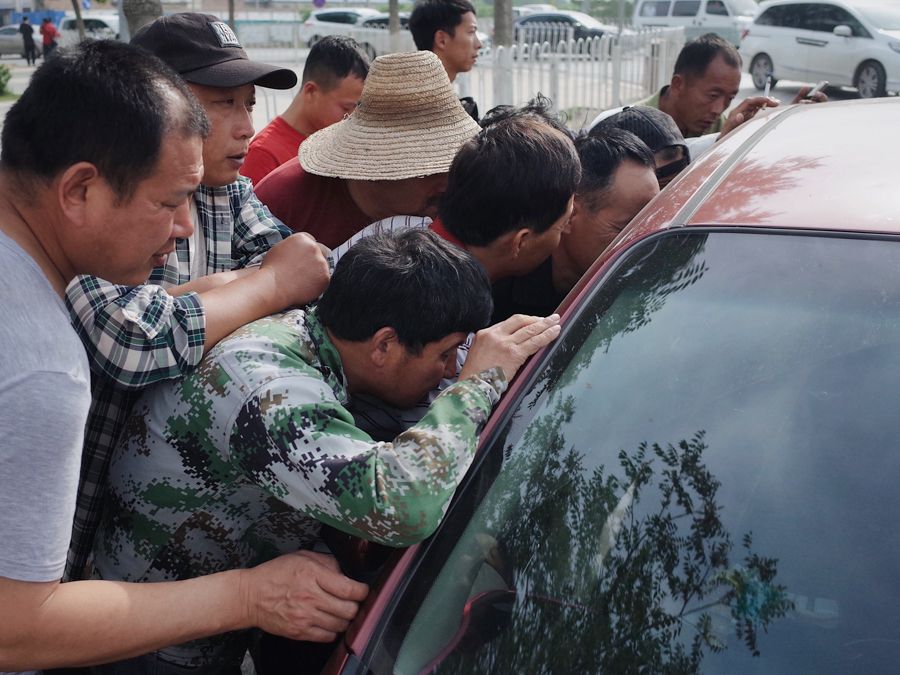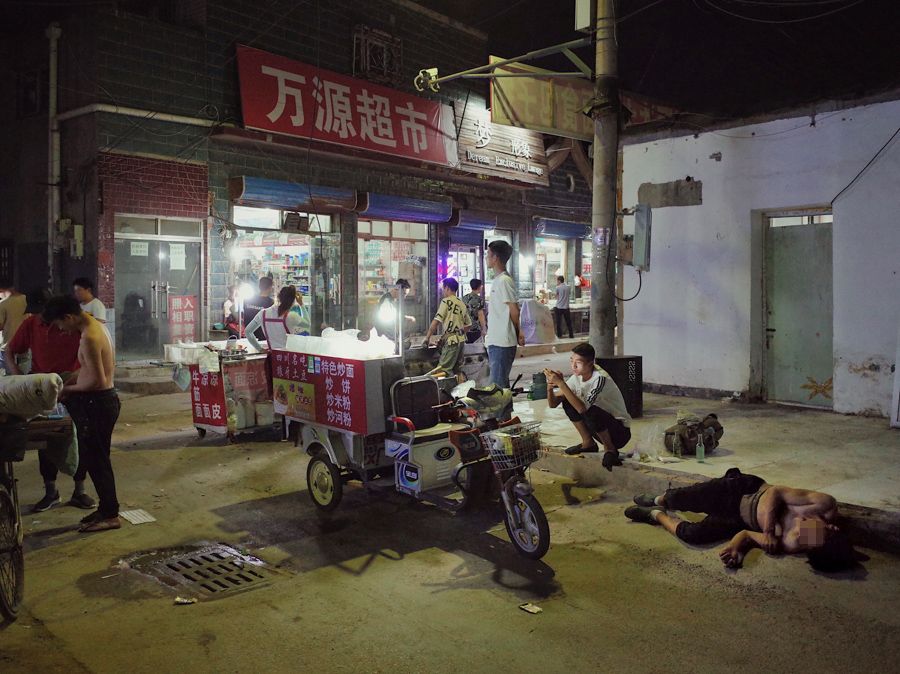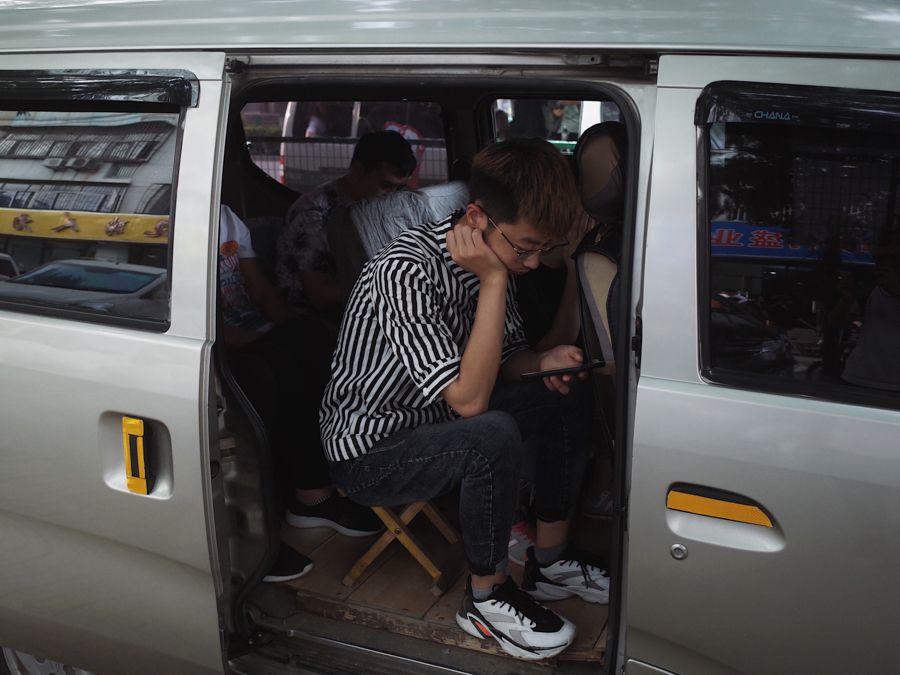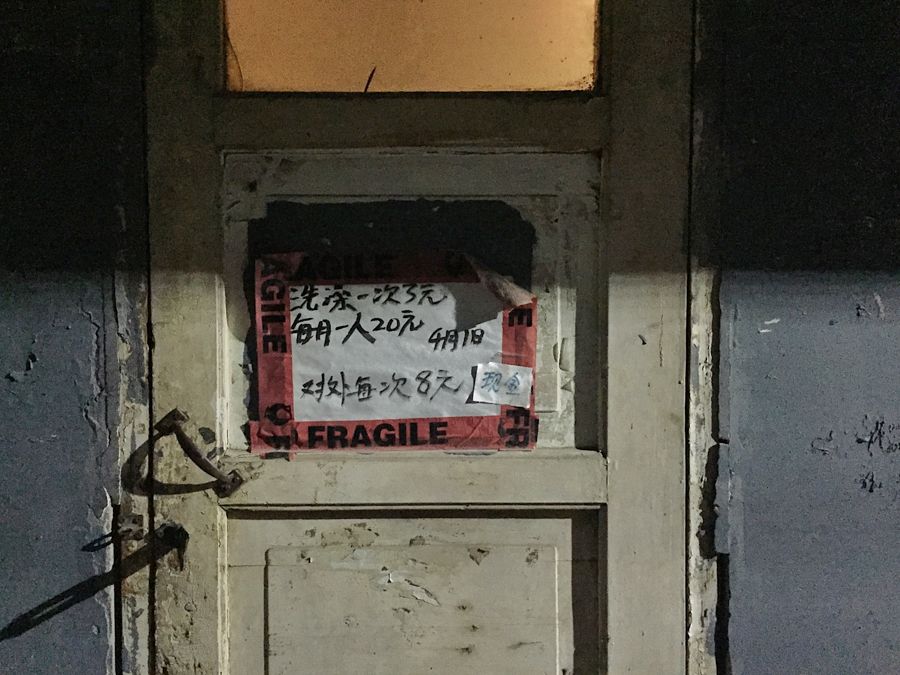
诞生于这个大时代,反对一切压迫和宰制的青年平台。关注思想交锋、社会运动,关心工人、农民、女性、全球南方等被损害者的真实处境,也通过写作和实践去想象、去创造别样的社会。网站:masseshere.com
Labor | At Maju Bridge, I think of freedom

Text|Safavid
As far as man as labor is a commodity, the more clearly he understands his own living conditions, that is, the mode of existence imposed on him by the production system, and the more he proletarianizes himself, the more he feels the pressure of the commodity economy. The colder people are, the less they like to be in close contact with commodities. —Benjamin, The Lyric Poet in the Age of Advanced Capitalism
I sat at the door of the rental house and lit a cigarette. The smell of mint mixed with nicotine is not pleasant, but the feeling of consuming time thoughtfully is mesmerizing. The people in the opposite restaurant watched the short-term video together in twos and threes. In front of the excess information, people lost their imagination to face the blank. On the sidewalk outside the hotel, there is a lonely and dim figure sitting there alone, dressed in a blue takeaway uniform, with a large bowl of noodles in front of him, which looks exaggerated in the dim light. I leaned in, patted him on the shoulder, and turned around to see a weathered, wrinkled, alert face. I pulled a cigarette out of the cigarette case I just bought and handed it to him. He smiled and declined politely with a string of "thanks." Obviously, he didn't have the time to wait for a cigarette as leisurely as I did. Five minutes later, he finished his noodles, rode on a mottled electric donkey hanging with other people's supper, and left. This is Maju Bridge at 1 am, the home of the migrant workers in Beibiao.
On the edge of the East Sixth Ring Road in Beijing, at the junction of Tongzhou District and Daxing District, there is a featureless area that white-collar elites have never heard of, but it has great influence among manual workers because it is a The largest labor dispatch center in the north is also the first stop for many migrant workers in Beijing.
On the muddy road, plastic garbage wet with unknown liquid floated in the breeze, and the narrow streets without street lights looked eerie. But not far from Maju Bridge, Yizhuang, separated by several streets, is brightly lit, and the high-end office buildings are like a distant theater curtain, shrouded around Maju Bridge, silently watching the scenes of human sorrow and joy that take place here. Without street lights, asphalt roads, and clean toilets, it's hard to believe this is the Beijing of the 2020s. Its next door, Yizhuang, has just been identified as the sub-center of the capital for key development, where it claims to prevent diseases in big cities, where Chinese and foreign companies gather, high, medium and low-grade residential buildings are lined up, and even the quiet bicycle track by the river is paved. Solar panels, with simplicity from the future.
Majuqiao and Yizhuang are like a pair of interdependent twin brothers, or to put it more vividly, Majuqiao is a huge raw material factory that provides essential and basic industrial bases for Yizhuang, Daxing and various surrounding industrial bases. factor of production: labor. This may explain why Majuqiao does not have all the promises of modernization - any increase in land prices and living costs will be passed on to the various costs of production in surrounding factories. Perhaps only in Maju Bridge, I can live in a "hotel" of 60 yuan a night. For people living in rural areas, the environment of this hotel room is not too bad. There are two beds and a TV set in a room of several square meters. This TV looks quite old, and its brain must be very cute in the era of LCD screens. Of course, it can only be a decoration with a permanently black screen now, and the people in this room who are watching short videos look at each other. The sheets and duvet cover smelled of mildew and cigarettes, and the yellowed sheets were reminiscent of a '90s dream, now a little hopeless.

In ancient times, such a dilapidated area was once prosperous. As one of the four fortresses guarding the capital as well as Lugou Bridge and Wanping City, Maju Bridge once had "horses" and "bridges". As early as the Yuan Dynasty, the royal family kept a large number of military horses here. In the late Ming and early Qing dynasties, people from Jinyang, Shanxi came to this place to operate the wine business one after another. There were hundreds of shops around, temples, guild halls, bucket shops, pot roasts, and so on. Mottled with age, Majuqiao's position as the gateway to Beijing has not changed, but it has changed from a distribution center for commodities to a distribution center for people. Talking about the 1990s, the aborigines in Majuqiao seem quite disappointed. "The Maju Bridge used to be like many beautiful villages on the outskirts of Beijing, with a beautiful life." The town government, central primary school and nursing home, which are landmark buildings, were very lively in the late 1980s. But villages with a population of less than 50,000 were quickly overwhelmed by the tide of migration.
Yizhuang was originally a factory, and a large number of factory workers came to live in Maqiao. Here provides them with a large number of cheap accommodation. People from all over the world poured in. Urbanization has engulfed everything. Beijing drifters have used Majuqiao as their base for their work. The snowball-like introduction of old villagers and the natural superior location of Majuqiao have changed everything here. At the beginning of the reform and opening up in which state power was shrinking, the self-organization at the grassroots level collapsed and restructured due to the influx of foreigners. Migrants have replaced the quiet old socialist community here, and the pedestrians lugging boxes are not growing up in Beijing. They come from the rural areas of Shanxi, Hebei, Henan, and Shandong. Some of them just live here for a day or two and find a place to work so they can move out. They are called "horse drifters", and as a subspecies of "northern drifters", they maintain a unique way of life.
The nature of large-scale industry determines the transformation of labor, the change of functions and the overall mobility of workers. For Maqiao youth, the most important part of Maqiao's life may be working to earn money. At 5 in the morning, my alarm went off, and at about 5:20, I walked to the intersection. In an uninhabited place at night, this time is full of people. The intermediary's shouts came one after another. Rijie's jobs include security guards and takeaway sorters. Under the impact of the epidemic, pharmaceutical companies with 200-230 a day have absorbed most of the workers here. All kinds of labor service companies gather young people who are applying for jobs in the morning, no matter if they are male or female, they don't need a resume. The intermediary usually only asks one question: "Do you have an ID card?"
Among young people in Maqiao, passing cigarettes is probably the most common way to express friendship. The crowd was rushed to the bus heading to the industrial park, and I followed a guy and handed him one. He didn't look very energetic, and as expected, he spent the night in the Internet cafe last night. Like Sanhe Dashen, these young people who were not even 20 years old dropped out of school in the countryside. Going out to work means escaping the double bondage of small villages and left-behind elderly people. They worked hard to exhaust the energy of their youth, abandoned the dream of renting a house and saving in the era of the first generation of working workers, working one day and surfing the Internet for three days. Internet cafes and games are so fascinating, not only because they can help young people vent their emotions and bring excitement to their nerves, but also because games and the online world mean a completely free fantasy world. In the Internet cafe, everything for him is light, but the reality is extremely heavy.

I got on the bus with him, and the car took us to Daxing. There is a national demonstration industrial park, with clean streets, office buildings and modern factories. The intermediary sent us the jacket with the logo printed on it for easy identification. People lined up at the factory gate. The foreman shouted in a hoarse voice and cursed at the undisciplined workers. He looked angry, unprovoked anger. But the people here also understand this rule very well, and the overseer's threat is useless at all - all he can control is everyone's wages for a day.
People do simple jobs that don't require any skills and don't learn anything. The excess labor pulled in by pharmaceutical companies generally only does two things - labeling and screwing bottle caps. This is the production base of a well-known company listed on the Science and Technology Innovation Board. It has made a fortune in the past two years by relying on its own COVID-19 testing reagents exported to Europe, and its market value has soared to several billions. The original production lines and equipment were simply unable to meet the expanded demand, and therefore, unlike the appearance of the modern factory building, the company opened a new production site inside the building. It is said to be a production site, but it is actually just a workshop. Long tables are neatly arranged, and the people who have been pulled sit together to complete the preliminary process of testing reagent production. The door of the factory is covered with large and small police reminders, and the content of the reminders is similar: please call the police if you encounter labor conflicts.
He didn't wash his hands, sanitize, sign a contract, and didn't have five insurances and one housing fund. After writing his name and mobile phone number, the other party handed him a white jacket and a sanitary cap. Each table has a supervisor, a room has a chief supervisor, the production site is hollow above, and there is a terrace on the second floor, where company personnel often appear. They patrol from time to time, standing on the second floor to have a panoramic view of everyone. In this way, it is difficult for us to look up to the company personnel who do not know when the surveillance will appear, but the other party can easily see all the movements in the hands of us and the supervisor. Just like Foucault's Panorama Prison, every link and person are under naked surveillance.
Before the start of work at 7:00, we hand in our mobile phones. I was placed in the "screw bottle cap" group. The lid of the upper half of the kit is plastic and the lower half is rubber, both of which have been made by standardized machines. And our job is to screw the two parts together like a soda bottle cap. It was a job that sounded easy and easy, but when it really came, I knew the horror. Skilled workers bandage their index fingers and thumbs and wear three layers of rubber gloves. There is a difference in size and tension in the material between the plastic cap and the rubber body, but if we don't force it, there will be a gap that is visible to the naked eye. Everyone was silent or bowed their heads to whisper. A screwed bottle of reagent should be inserted into a regular plastic tray. Each plastic tray can hold a hundred reagent bottles neatly, that is to say, the supervisor can clearly see which is faster and which is slower. The co-workers were all very skilled. The supervisor walked around the table, grabbing the bottle caps that everyone had screwed up, yelling at the workers who didn't screw them tightly, and urging the workers who screwed too slowly. Most of the cap-screwing group were men, and women were mostly assigned to the more relaxed "labeling". The younger ones are mostly day laborers who just arrived like me, while the older ones hope to have long-term security and organization. There was an inexplicable sense of solidarity among the co-workers. People were silent in the face of the supervisor's abuse, but silently passed on help and skills among their tablemates.
After dozens of minutes, at the hundredth bottle cap, my hands began to go numb. At the 200th time, the supervisor grabbed a handful and asked me to return the bag and redo it with a look of embarrassment. Obviously, the last elimination system is implemented here. If you screw up too slowly, you will be asked to leave. Not only will you not be able to get your salary, but the fruits of half a day's labor will be given to the company for free. In order to make money smoothly, the rest Unconsciously, they started the "involution" mode of competing with each other. By the time more than 800 caps were reached, my gloves frayed and more than an hour had passed. The brain can't think, and the eyes are fixed on the bottle cap in his hand. By noon, my index finger and thumb had begun to blister because of long-term twisting of the bottle cap, and my muscles were sore and numb. At the same time, because of sitting in a crowded room, wearing an airtight sanitary cap, white coat and shoe covers, the feeling of sultry heat and fatigue hit together. Except for a self-funded lunch at noon, from 7am to 10pm, the workers repeat this boring action with no breaks. The $230 pay might seem tempting, but it's hard to say that someone can do it every day without a break.
In the middle of the night, the return bus carried people with 230 yuan in their hands and returned to Maju Bridge in exhausted drowsiness. Some Internet cafe halls are only 30 yuan all night. Under the dark sky, these young people are wandering in the smoggy sky of Beijing. They are used to being scolded for being lazy and lacking in fighting spirit. They have no education, no skills or certificates. For Maqiao youths, time is stagnant and never moves forward, and the freedom they want is increasingly out of reach due to meaningless work and inflation.

The door of the "hotel" I stayed in Majuqiao Town was not locked properly, and the toilet had to be a few steps out of the door, which was not friendly to women. Legend has it that in 15 years, in the public toilet in West Back Street, a girl went out to the toilet at 2:00 in the middle of the night and was raped. Since then, various landlords have built public toilets in their courtyards. While the bombastic stories of gang fights in the 90s are long gone, pickpocketing is not uncommon. Crime and desire always coexist. Behind the flying pornographic cards are the painful struggles of strangers. The ubiquitous inhumane goods stores, funeral services and labor service companies together constitute a spectacle of life in Majuqiao. But things about the flesh have been different in recent years. The sex service industry, which has been hit by the police, has moved into the underground, and "doll experience" shops with blatantly written "minors are not allowed" have begun to appear here, but they have exempted them from To organize prostitution, the silicone "real doll" that has emerged in recent years as a service provider for working men is cheaper, more blatant and healthier. Apart from sex, legal entertainment is fully functional here. Internet cafes, billiard halls, massage parlors, KTVs, tattoos, haircuts, manicures, and restaurants of various grades are all available, and they are all maintained at a fairly affordable level. Corresponding to this fantastic consumption center is death. There is a street of funeral supplies in Majuqiao Town. As the wholesale source of funeral supplies in Beijing, the merchants in Beijing who operate funeral supplies are concentrated here. There are many urns made of mahogany, red sandalwood, marble, jade and other materials. They're like a hint, casting a tragic overtone to the fleeting consumerist joy here. It's no wonder that when I searched on the Internet why there are so many funeral business stores in Majuqiao, the answer I got was just an understatement of "many people died."
Whether it is a low-level office white-collar worker, an emerging service worker or a factory worker, the process of selling labor to accumulate savings is difficult. After all, Maqiao does not exist as an extrajudicial paradise for instant pleasure. The exceptional status it enjoys in Beijing stems from a fundamental assumption: that people here contribute their labor cheaply to neighboring factories. For white-collar workers living in Beijing, more than half of their wages will be used to pay rent, but for blue-collar workers in factories, wages need to be used to reproduce the body, and they need extreme hedonic experiences to hedge the assembly line Physical torture on the job for more than 12 hours. To provide a low-cost consumerist experience in Beijing, rent must first be low, and as a result, Majuqiao’s land price seems to be deliberately kept low. The subway Yizhuang Line suddenly turned northeast at a place close to 3 kilometers from the Sixth Ring Road. If you want to take the subway to downtown Beijing, you must first take a bus and then transfer. It is at least 20 kilometers from Majuqiao to the center of Beijing. In addition to the trouble of switching to other lines and the crowded and sweltering environment of the Beijing subway, it is not realistic to live in Majuqiao and then go to Financial Street or Guomao to work. .
However, commuting and rent have become conspiracies that stifle the imagination. Some people imagine that they have any door in Doraemon, but the purpose of the door is just to satisfy a simple wish: they can live in a cheaper Majuqiao, and open the door in the morning and go to work in Xidan. Of course, under modern industrial conditions, if any door were to be widely produced, the geographical arrangement and real estate system would be revolutionized. Marx once said that circulation is a part of production, and the circulation of commodities adds value. It is this relationship, the space of production is reflected in the urban and rural landscape and the relationship between time and space. Space transportation also belongs to "value production", and the ability to overcome space barriers also belongs to "productivity". This is reflected in Maqiao, which is a combination of "access" and "restriction". On the one hand, migrant workers, permanent residents and homeless temporary workers in Maqiao can take part-time jobs arranged by labor agencies in the early morning and be transported to Yizhuang and Daxing along the straight and smooth asphalt road along the Beijing-Shanghai Expressway and the Sixth Ring Road. Industrial factory parks in various places, on the other hand, they are also blocked from the core area of Beijing by the money and time cost of transportation. They seem to be free, but under various arrangements, they are deeply trapped in the disillusioned zone of the vast border between their hometown and the terrifying city. They can go anywhere, but they can't go anywhere.
As I left Maqiao, I looked out at the village-in-a-city buildings, many of the windows remained dark, others sadly withered under the evening gaslights. These withered windows contain loneliness, old age, poverty, and all the misery that the poor keep silent about. And none of us have enough time to go through the drama of our respective lives, which is exactly why we age. For Maqiao youths, the job is to extract the blood, and then use time as fuel to burn it, and the ashes left after burning are money.
Like my work?
Don't forget to support or like, so I know you are with me..
Comment…